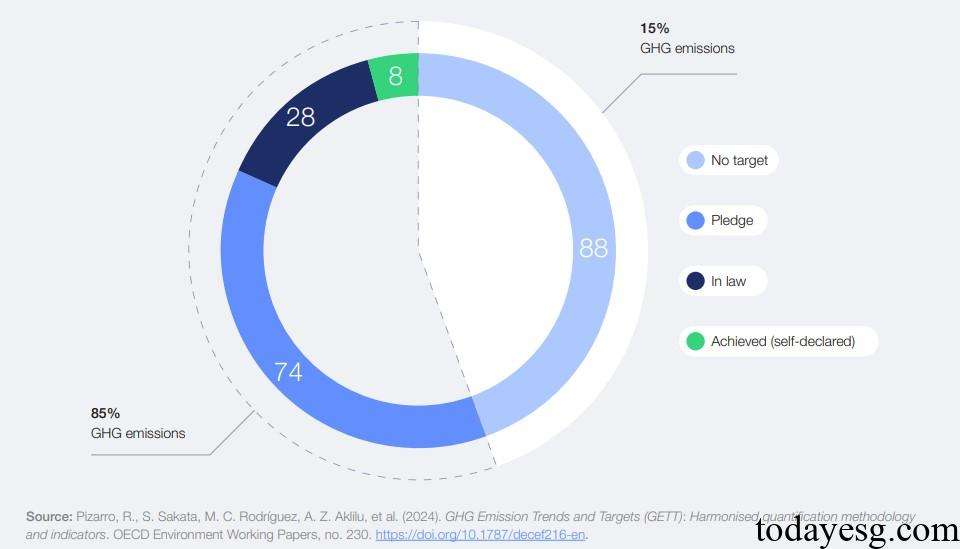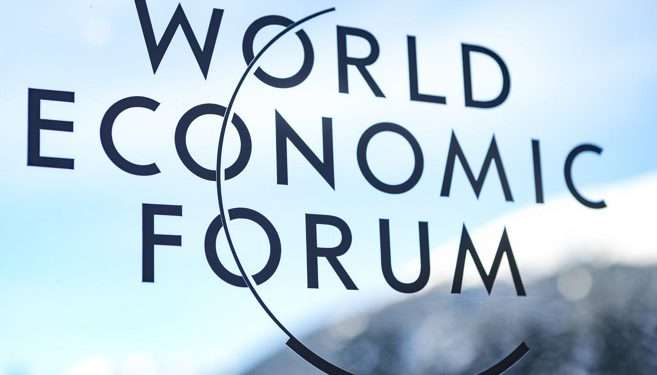Net Zero Transition Cooperation Report
World Economic Forum (WEF) releases a report on net zero transition cooperation, aimed at providing guidance for public and private sector cooperation in addressing net zero transition.
The World Economic Forum believes that the public and private sectors need to take joint action to reduce greenhouse gas emissions. The WEF has proposed a new framework for cooperation, outlining the directions of cooperation between the two parties.
Related Post: World Economic Forum Releases Report on Net Zero Transition Financing
Current Situation of Net Zero Transition
As of June 2024, global temperatures have been 1.5 degrees Celsius higher than preindustrial levels for 12 consecutive months, reflecting an accelerated rate of global warming. The Global Tipping Points report shows that the world is about to reach eight critical tipping points, which may cause irreversible changes to the climate system. Even if all Nationally Determined Contributions (NDCs) are achieved in the future, global warming will reach 2.5 degrees Celsius. To achieve the 1.5-degree Celsius warming target, the world needs to reduce carbon emissions by 7% annually.
According to a report by the Science Based Targets Initiative, 1866 large corporations and 2253 small and medium-sized enterprises worldwide have set scientific carbon reduction targets by 2023, accounting for 39% of the total market value of global companies. As of March 2024, 110 countries have set net zero emission targets, with 96 countries planning to achieve net zero by 2050, but only 27 countries and the European Union have incorporated them into law, accounting for 16% of global greenhouse gas emissions.

The public sector has taken a series of measures in the net zero transition, including regulatory policies, fiscal incentives, subsidies, pricing mechanisms, etc. However, the net zero transition still faces some challenges, such as regional development differences and insufficient policy effectiveness. Some studies have analyzed over 1500 global climate policies from 1998 to 2022 and found that only 63 have been successfully implemented. The survey by the World Economic Forum shows that there is an urgent need for improvement in areas such as net zero cases, carbon emissions calculation, value chain decarbonization, and green business.
How to Achieve Net Zero Transition Cooperation
The World Economic Forum Industry Net Zero Accelerator proposes a new framework to help the public and private sectors achieve net zero transition cooperation, providing the following opportunities for collaboration:
- Understand and utilize public finance mechanisms to achieve net zero: Provide appropriate incentives to ensure that decarbonization projects have good commercial value, enhance the competitiveness of low-carbon products, and provide financing opportunities for low-carbon alternatives.
- Participate in jointly developing net zero financial mechanisms: Collaborate with stakeholders to develop decarbonization roadmaps and jointly participate in financial policies related to net zero transition.
- Promote the adoption of carbon tracking in the value chain: Improve the coordination and interoperability of carbon emission calculation methods, support the implementation of digital tools for automated carbon footprint calculation, and add low-cost, low code technical solutions to existing facilities.
- Promote the improvement of carbon accounting standards: Improve carbon emission accounting and reporting standards at the industry, enterprise, and product levels, coordinate different product carbon footprint methods, and develop application guidelines for high-quality carbon credits.
- Actively support the implementation of net zero solutions in the value chain: Support the adoption of net zero technologies in the value chain, plan and develop green and energy-saving training, and raise consumer sustainability awareness to promote the application of net zero solutions in the value chain.
- Collaborate with the government to formulate decarbonization policies for the value chain: Enterprises and small and medium-sized enterprises in developing economies, as important participants in supply chain decarbonization, can actively participate in the formulation of industrial policies and standards, and expand climate action in the value chain.
- Jointly invest in climate technology, infrastructure, and markets: Actively invest in low-carbon technologies and share the development of climate related technology facilities. Data shows that investing $1 in clean technology may generate $9 in revenue by 2050.
- Provide policy conditions for the application of climate technology: Cooperate to improve policy tools for the development and application of climate technology, establish a policy framework for climate technology innovation, establish climate technology application institutions, and improve climate technology incentive subsidy policies.
Reference:
United for Net Zero: Public-Private Collaboration to Accelerate Industry Decarbonization








